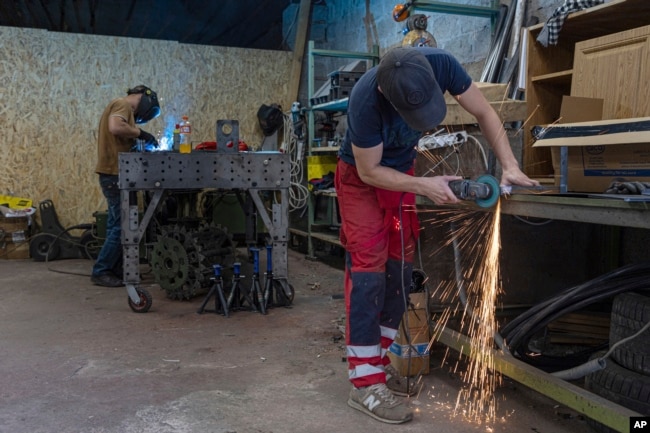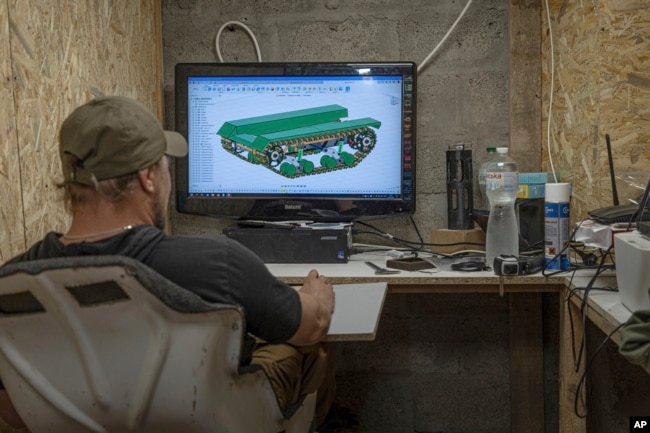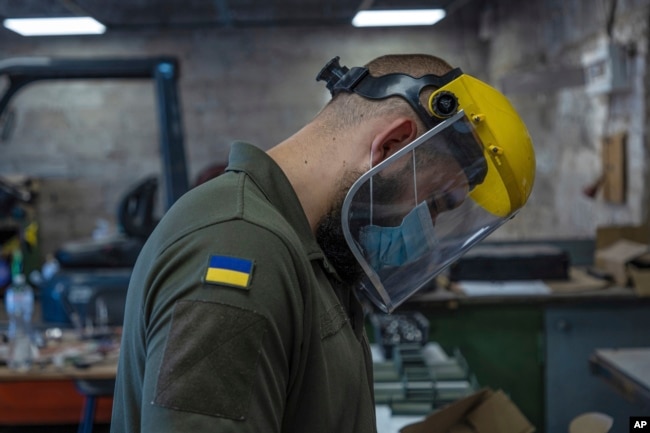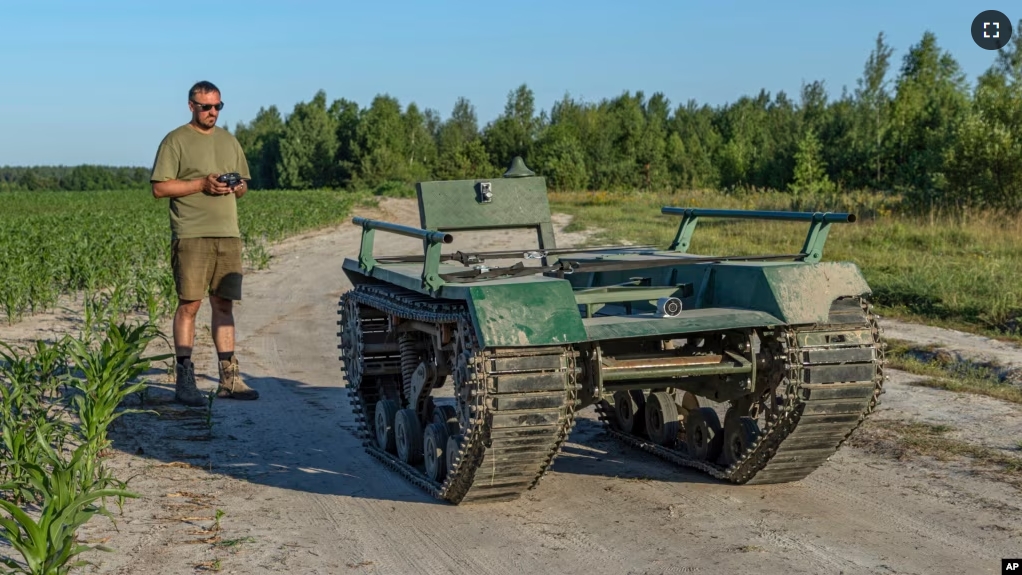Many new Ukrainian businesses are reportedly developing unmanned military vehicles for the country’s war against Russia.
The operations often happen in empty warehouses or secret, underground factories, the Associated Press (AP) reports.
The weaponized vehicles reportedly aim to ease shortages of soldiers and equipment.
Workers at laboratories in hundreds of workshops are using technology tools to build robot fighters to battle Russian forces, the AP said.
The AP reported that an estimated 250 new defense companies are currently involved in the production of war vehicles across Ukraine. The news agency noted that such operations can look similar to rural car repair shops.
Andrii Denysenko heads one of the new companies, or startups. He told the AP his employees can put together an unmanned ground vehicle, called the Odyssey, in just four days. The vehicle has a selling price of $35,000, which is about 10 percent less than an imported model.

Denysenko asked the AP not to publish details about his business to protect the operation and the people working there.
The work area is divided into small rooms for welding and body work. Workers produce the main structure, paint the vehicles green and then fit them with basic electronics, power systems and cameras and sensors.
Ukraine’s military is considering several different models of new unmanned air, ground and sea vehicles produced by the startups. A fourth branch of Ukraine’s military – the Unmanned Systems Forces – joined the army, navy and air force in May.
Engineers get production ideas from stories in defense magazines or online videos to produce less costly models. Weapons or smart elements can be added later.

“We are fighting a huge country, and they don’t have any resource limits,” said Denysenko. “We understand that we cannot spend a lot of human lives. War is mathematics.”
Reporters from the AP watched the car-sized Odyssey vehicle spin and kick up dust as it rolled through a field of corn during a demonstration in the north of the country last month.
The 800-kilogram test model, or prototype, looks like a small tank. Developers of the vehicle say it can travel up to 30 kilometers on one battery charge. The prototype acts as a rescue-and-supply vehicle but could be changed to carry a remotely operated heavy machine gun or to clear landmines.
A Ukrainian government fundraising website for the Unmanned Systems Forces states that teams of robots “will become logistics devices, tow trucks, minelayers and deminers, as well as self-destructive robots.” “The first robots are already proving their effectiveness on the battlefield,” the statement adds.

Mykhailo Fedorov is Ukraine’s deputy prime minister for digital transformation. He is urging citizens to take free online courses and build military drones at home. Fedorov has called on Ukrainians to make a million drone flying machines per year.
“There will be more of them soon,” the Unmanned Systems Forces website said. “Many more.”
Denysenko’s company is working on other projects as well. One is a motorized exoskeleton designed to increase a soldier’s strength. Another carrier vehicle would be able to transport a soldier’s equipment and even help him move uphill. “We will do everything to make unmanned technologies develop even faster. (Russia’s) murderers use their soldiers as cannon fodder, while we lose our best people,” Fedorov wrote in a message published online.
Human Rights Watch and other international rights groups are calling for a ban on weapons that do not involve human decision making. This concern has been shared by others, including the U.N. General Assembly, American businessman Elon Musk and the founders of the Google-owned, London-based startup DeepMind.
I’m Bryan Lynn.
The Associated Press reported this story. Bryan Lynn adapted the report for VOA Learning English.
___________________________________________
Words in This Story
warehouse –n. a large building that provides centralized storage for a lot of goods and products that are then shipped to customers
weld v. to join pieces of metal together by heating them until they almost melt and then pressing them together
remote – adj. happening from far away
logistics – n. the practical arrangements for something
transformation – n. to completely change from one system to another, usually in an effort to improve it
drone – n. an unmanned, flying vehicle
exoskeleton – n. an artificial external supporting structure
fodder – n. people or things that are useful for the stated purpose
